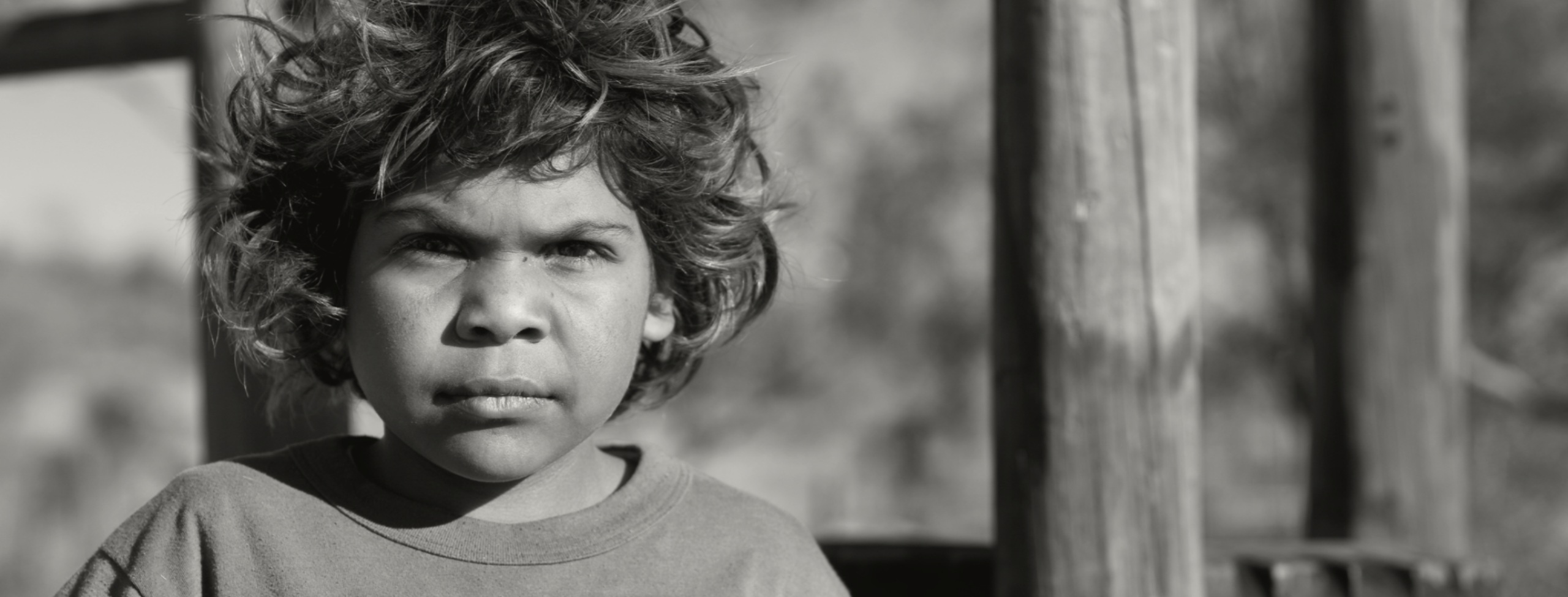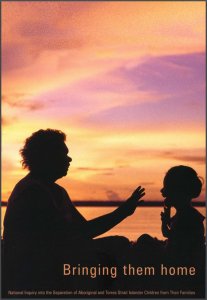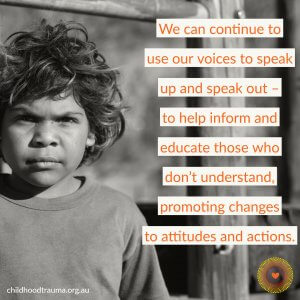
Bringing Them Home 20 years on: an action plan for healing
This blog entry was authored by Glenda Kickett, Manager, Aboriginal and
Torres Strait Islander Partnerships and Engagement
at the Australian Childhood Foundation
Today marks the 21st anniversary of the Bringing Them Home: Report of the National Inquiry into the Separation of Aboriginal and Torres Strait Islander Children from their Families.
The report was a national inquiry into the forced removal of Aboriginal and Torres Strait Islander children from their families, and was established by the Federal Attorney General in 1995 and was conducted by the Human Rights and Equal Opportunity Commission (HREOC) from 11 May 1995 to 26 May 1997.
 Released on 5 April 1997, the final report was tabled in the Australian Parliament on 26 May 1997, and it documented the experiences of Aboriginal and Torres Strait Islander peoples who as children were forcibly taken from their families over many generations and became known as the Stolen Generations. The report also made 54 recommendations to address the impacts of past policies and practices of removal and addressed the ongoing trauma faced by Aboriginal and Torres Strait Islander peoples and communities. The recommendations included a national Apology, reparations and improved services for Stolen Generations members.
Released on 5 April 1997, the final report was tabled in the Australian Parliament on 26 May 1997, and it documented the experiences of Aboriginal and Torres Strait Islander peoples who as children were forcibly taken from their families over many generations and became known as the Stolen Generations. The report also made 54 recommendations to address the impacts of past policies and practices of removal and addressed the ongoing trauma faced by Aboriginal and Torres Strait Islander peoples and communities. The recommendations included a national Apology, reparations and improved services for Stolen Generations members.
The inquiry behind the report was thorough. Those involved collected evidence across both public and private settings; from Indigenous peoples and groups; and non-Indigenous peoples and groups. There were 777 people and organisations which gave evidence or made submission of which 535 were Indigenous people.
It is striking that many Australians today are still unaware of the breadth, impact or extent of Government activities included in the phrase ‘Stolen Generations’. It is telling that 21 years on, many of the recommendations have not been implemented, and this has created additional trauma and distress to the members of the Stolen Generations and has failed Aboriginal and Torres Strait Islander peoples and communities.
It is estimated that 1 in 10, and possibly as many as 1 in 3, Indigenous children were removed from their families and communities from 1910 to the 1970’s as part of the Government’s assimilation policy and no Aboriginal and Torres Strait Islander family or community was not affected. (See ATNS site for more information on these estimates).
Many of the children were removed away from their families to institutions run by churches and non-government organisations, or adopted by non-Indigenous families, or placed on stations or households to work as domestic servants or farm hands.
Often subjected to very harsh conditions and treatment, including physical, psychological, emotional and sexual abuse, they had limited contact with their families and were indoctrinated to believe in the inferiority of their culture and people. Many of the children did not ever return to their families and communities.
In 2017, ‘Bringing Them Home 20 years on: an action plan for healing’ review was put forward. It contained the following action recommendations:
Action one – comprehensive response for Stolen Generations: Ensuring the holistic needs of the Stolen Generations are met, including dedicated needs-based funding and a universal, culturally safe and trauma-informed financial redress scheme.
Action two – healing intergenerational trauma: Addressing the serious, widespread, and worsening effects of unresolved intergenerational trauma arising from the processes of colonisation and from the forcible removal of children, as the driver of many health, social and wellbeing issues affecting Aboriginal and Torres Strait Islander peoples including the Stolen Generations, their families and descendants.
Action three – creating an environment for change: Creating a policy response to the rights and needs of Stolen Generations members and Aboriginal and Torres Strait Islander people that is based on the principles underlying Bringing Them Home as a basis for reconciliation in Australia.
(Refer to: Bringing Them Home 20 years on: an action plan for healing; pages 26-27)
 At the Foundation, we are working with more Aboriginal and Torres Strait Islander children, families and organisations than ever before. We are committed to reconciliation action pathways, and to working in ways that help children and families reconnect after trauma and make meaning that helps with recovery.
At the Foundation, we are working with more Aboriginal and Torres Strait Islander children, families and organisations than ever before. We are committed to reconciliation action pathways, and to working in ways that help children and families reconnect after trauma and make meaning that helps with recovery.
If, as a nation, we are serious about moving forward, about ensuring that the holistic needs of the Stolen Generations are met, then national and local action must be taken. The actions listed in the 2017 report contain important Governmental responses. But as professionals working with Aboriginal and Torres Strait Islander children, families and communities, we know that the impact of these events continues to be felt. Twenty years on, we still face substantial hurdles towards these recommendations being achieved, but we can continue to use our voices to speak up and speak out – to help inform and educate those who don’t understand, promoting changes to attitudes and actions.
For further information and to hear the testimonies of members of the Stolen Generations, go to:
ATNS http://www.atns.net.au/agreement.asp?EntityID+762)
Bringing Them Home, Separation of Aboriginal and Torres Strait Islander children, YouTube video – https://bth.humanrights.gov.au/media/videoHealing Foundation – http://healingfoundation.org.au
Human Rights – https://bth.humanrights.gov.au
